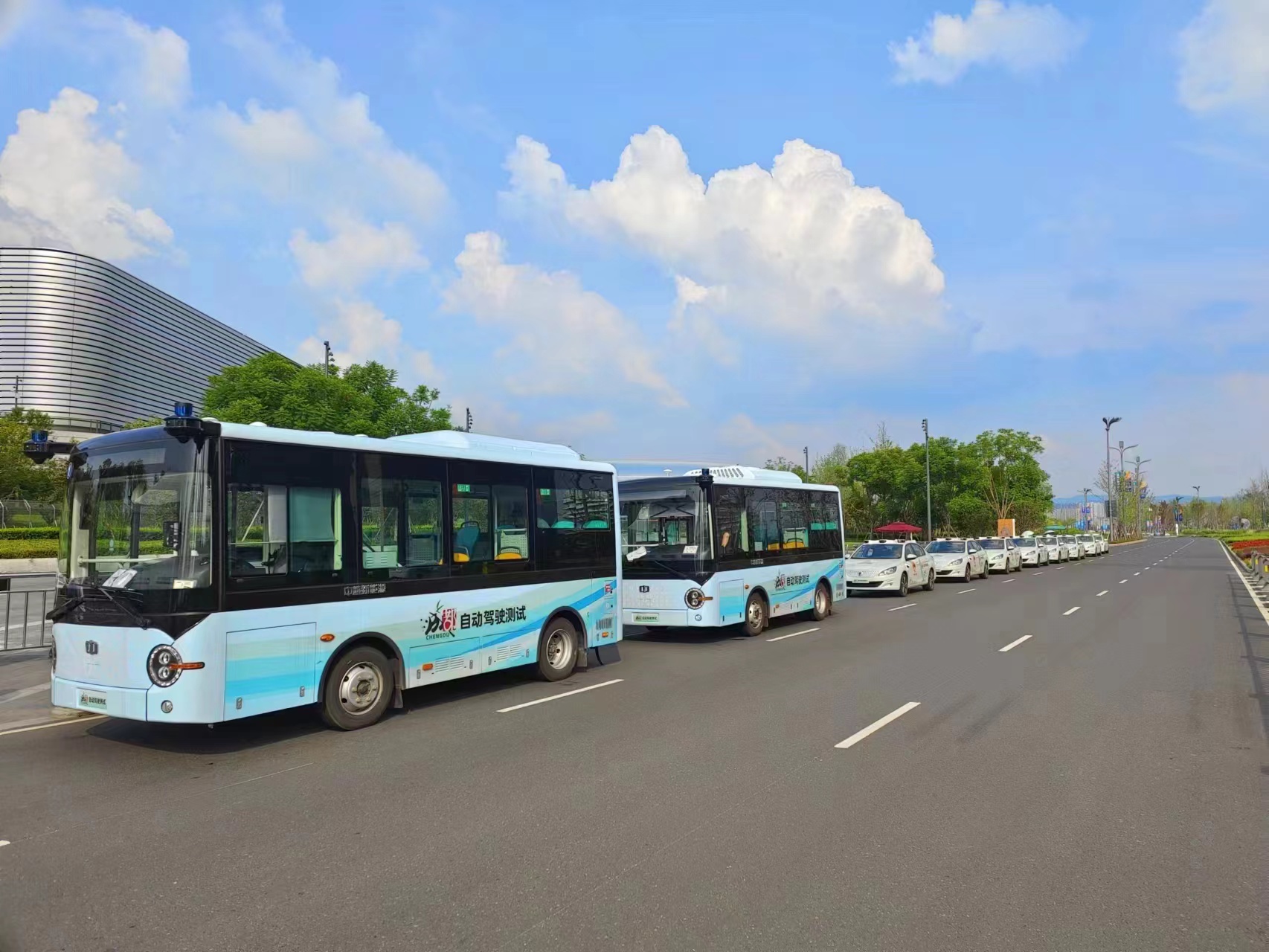The Ministry of Industry and Information Technology, together with the Ministry of Public Security, the Ministry of Natural Resources, the Ministry of Housing and Urban-Rural Development, and the Ministry of Transport, issued a notice announcing the list of 20 pilot cities for the application of “vehicle-road-cloud integration” for intelligent connected vehicles. Chengdu successfully made it into the first batch of 20 pilot cities. From the joint release of the notice on January 17 by the five departments to the official announcement of the first batch of pilot cities on July 3, less than six months have passed, taking a crucial step forward in promoting the development of “vehicle-road-cloud integration.” The publication of the list of pilot cities marks the entry of “vehicle-road-cloud integration” into a new stage of scaled development. Promoting the development of the intelligent connected vehicle industry, Chengdu has successively introduced multiple special policies and supporting documents. Vehicles are speeding on the “smart road,” accurately calculating speeds to travel smoothly on the “green wave band”; “smart cars” achieve autonomous driving, taking passengers to their destinations… The scene of “smart cars” driving on the “smart road” is slowly unfolding in reality. It is understood that “vehicle-road-cloud integration” is a system-level solution that organically integrates “single-vehicle intelligence + vehicle-road coordination + AI cloud platform overall coordination.” It can be understood as truly achieving safe, efficient, energy-saving, and comfortable intelligent driving by integrating the physical and information spaces of people, vehicles, roads, and clouds. In simpler terms, it is “smart cars + smart roads,” allowing “smart cars” to interact dynamically in real-time with roads, people, and the environment.

Actively developing emerging tracks, Chengdu has successively issued multiple special policies and supporting documents in recent years to promote the development of intelligent connected vehicles industry. Last year, the “Chengdu New Energy and Intelligent Connected Vehicles Industry Development Plan” pointed out that by 2030, Chengdu aims to become a world-class highland for new energy and intelligent connected vehicles industry. This year, Chengdu also launched the country’s first vehicle-mounted intelligent system industry alliance, laying a solid foundation for the industry. According to data from the Chengdu Economic and Information Bureau’s New Economy Committee, more than 4,000 intersections in Chengdu have achieved networking of traffic lights, and 200 kilometers of roads have been mapped with high precision. Chengdu has taken the lead in policy guidance nationwide, with over 3,500 sets of OUB devices installed in “Chengdu-made” vehicles, laying the foundation for large-scale pilot applications. At the same time, nearly 30 local standards have been promoted, and projects on vehicle networking identity authentication and security system construction have been selected as excellent cases by the Ministry of Industry and Information Technology. By 2026, the “Vehicle-Road-Cloud Integration” will be fully open in the central urban area. With the acceleration of key technological breakthroughs, demonstration applications continue to expand, and the construction of “Vehicle-Road-Cloud Integration” is gradually advancing. In recent years, China’s intelligent connected vehicles have entered a new stage of rapid technological evolution and large-scale application development, accelerating towards an outbreak period, potentially becoming another leading high-tech industry globally after electric vehicles. A relevant person in charge of the Chengdu Economic and Information Bureau’s New Economy Committee stated that after years of continuous layout, Chengdu has certain advantages in the intelligent connected vehicles industry. In terms of hardware, Chengdu has strong basic manufacturing support, with a basic advantage in key components such as car chips and sensors. In terms of software, Chengdu has gathered a group of companies in the fields of vehicle operating systems, professional algorithm software platforms, and application software. In terms of integrated applications, Chengdu has a certain system integration capability, providing support for the development of domain control systems. In terms of industrial ecology, Chengdu’s terminal market, professional talents, and innovation ecosystem provide strong support for the development of vehicle-mounted intelligent control systems industry.

Red Star News reporters Ye Yan and Wang Junfeng Photo from Chengdu Municipal Economic and Information Bureau New Economic Committee Editor: Cheng Xu